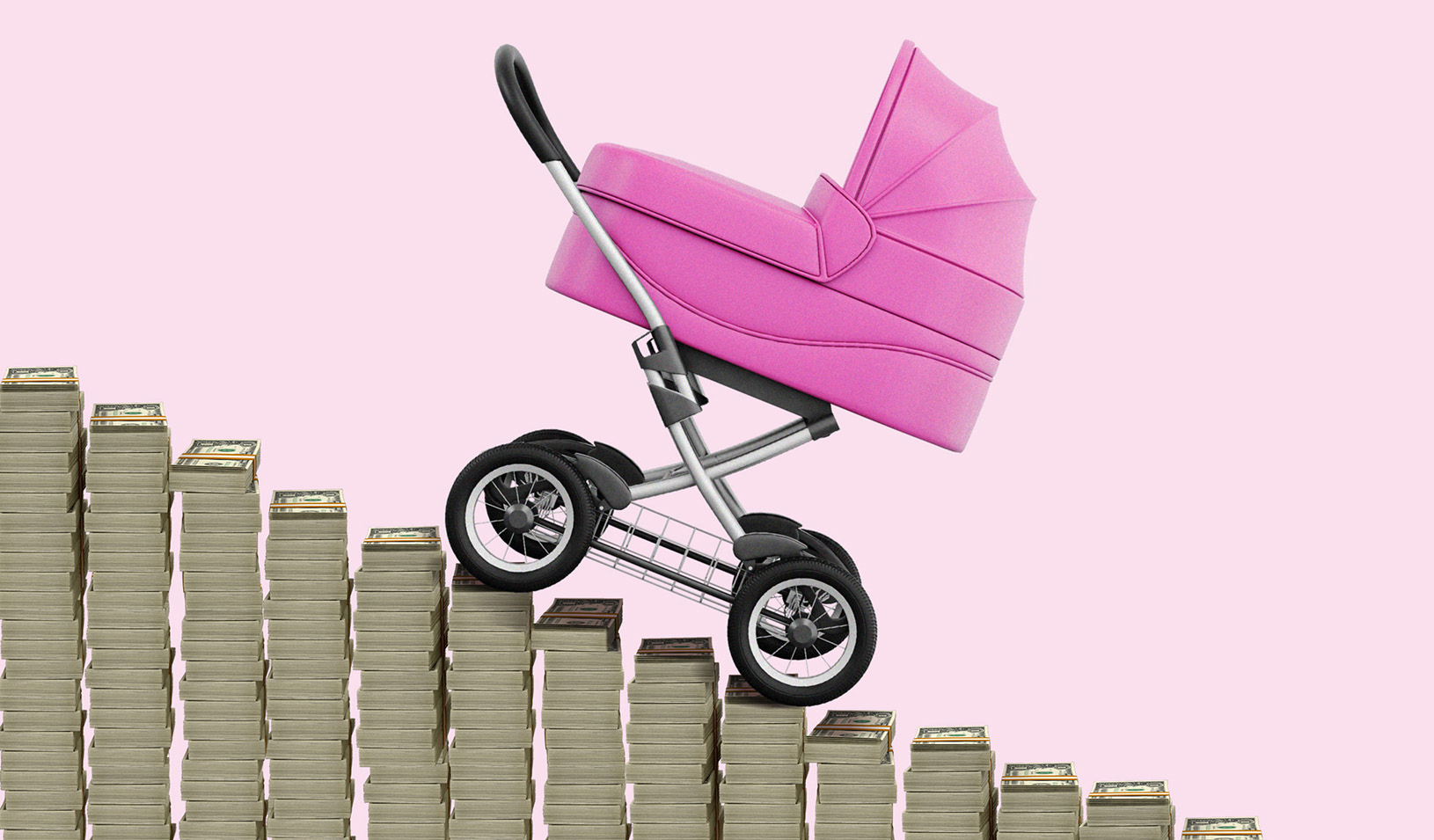
Illustration by Alvaro Dominguez.
The U.S. economy hit a historic high in 2018, and today unemployment is at its lowest rate in five decades. Yet wage growth for the vast majority of Americans has stalled, and more people are struggling to afford housing, health care, education, and other basics.
“Times are good if you are college educated and working in the right industries in the right locations,” says economist Paul Oyer. “But the last 50 years have been terrible for people with lower skills. Adjusted for inflation, the average earnings of a man who didn’t go to college is lower now than it was 50 years ago. That’s unheard of.”
Oyer, a professor at Stanford Graduate School of Business, teaches a course to MBAs focused on causes and complications of U.S. inequality. The course is co-taught by Lenny Mendonca, MBA ’87, who serves as California Gov. Gavin Newsom’s chief economic and business advisor and oversees the state’s Office of Economic Development.
Here, they discuss what is driving inequality, vet proposed solutions, and speculate what will happen if the trend continues.
Q: This is the first generation of Americans that is expected to fare worse than the prior. What’s driving this trend?
Oyer: A number of factors. Globalization, for one. A really good substitute for a manual laborer in the U.S. is a manual laborer in China or Costa Rica. Another factor is technology. Apple is the canonical example. The company is designing their products here, so the people who work in engineering are more and more valuable, and making more and more money, but the people who, in the old days, might have made computers here — that’s now done in China.
Mendonca: We’ve also had a combination of tax and regulatory policy that has encouraged capital formation and increasing returns to capital, so labor’s share of returns has decreased. The last round of tax policy out of Washington made this worse.
Q: Is this level of inequality historically unprecedented?
Oyer: You had the same thing with the Industrial Revolution that concentrated more and more wealth into the hands of capital. Henry Ford, the Rockefellers, Leland Stanford —
Mendonca: — J. P. Morgan.
Oyer: But the Great Depression took the wind out of the sails of that. Inequality was substantially reduced during the ’30s, ’40s, and ’50s.
Mendonca: A large portion of what reduced inequality was the destruction of wealth during World War II and the fact that the U.S. benefited afterward from being the last standing industrial economy. We had a global environment that was based on American exports. Today, we’re in the midst of a transition to a very different economy. This time, it’s much more global, particularly in labor markets.
Oyer: But as the U.S.’s inequality has grown since the ’70s, inequality has reduced dramatically around the world.
Q: Why is inequality dramatically better globally?
Oyer: Because the low-wage jobs that left here are considered really good jobs in China. We’ve lifted a billion, two billion people out of poverty over the past 30 years.
Mendonca: We’ve lifted more people out of abject poverty in the last 20 years than in the history of the world.
Q: Headlines announced Google has more contract workers than full-timers. Amazon paid zero taxes this year. Multinationals are so good at tax avoidance, some Stanford researchers suggest we may underestimate tax evasion by 50%. Are companies to blame for growing inequality?
Oyer: I don’t know that it’s their fault. They’re following the rules — mostly. Inequality varies widely between different companies and between different cities. There are companies and cities that have done well in the last 50 years and companies and cities that have done poorly. Apple’s done great. Google’s done great. General Motors has done lousy, from the C-suite down to the factory workers.
Mendonca: I don’t think most business leaders are worker-exploiting, uncaring, community-destroying, environment-polluting extreme capitalists. They’re just doing their jobs. So we have to create an environment where doing their jobs includes thinking about all those things in a way that’s not in conflict with their business interests.
Oyer: As a company, I’m not going to individually fix inequality by overpaying my workers, because then someone else is going to come in and undercut me and pay less to their workers. We need policy interventions. We need to give companies the incentive to do the right thing.
Q: So are policy interventions the primary solution?
Oyer: We’re not going to solve all these problems just through policy. Too many people have incentives to obstruct the policies that should go through. As an economist, I’m favorable toward certain types of immigration and toward free trade. Those are good policies, if you ask me. They’re potentially what we call — I’m throwing out a jargon term — Pareto-optimal, meaning if you did it right, you could make everyone better off. If you suddenly make trade free and that hurts some people, you can transfer money to make them better off.
Well, everybody always forgets to do that part — where they transfer money. That’s what’s led to a lot of inequality. There are a lot of good policies that we’ve implemented over the years, like free trade and immigration, that have been efficient and grown the economy but have contributed to inequality. Automation, while not a policy, is another example where we say we can have robots and then take care of the people who lose their jobs. We always forget to go back and take care of the people who lose their jobs.
Q: A much steeper income tax has gotten attention — some pitching even 70%. Is that possible?
Oyer: I can’t imagine a 70% tax rate. And I don’t think we’ll see a universal basic income for a long time. These are hugely expensive ideas.
Q: What about a higher minimum wage?
Oyer: The neoclassical theory on minimum wage is that if you raise it, some low-wage workers have more money, but others will lose their jobs and be worse off. How true is that? The answer is, for small enough changes when the economy’s strong, it’s not that big of a deal. It definitely improves the welfare and buying power of people at the low end of the spectrum. But it’s really just keeping people out of poverty. It’s not creating middle-class families.
Q: What would help create middle-class families?
Oyer: The big payoffs are early interventions. Getting kids into preschool, having them not fall behind. There’s a lot of evidence that by third grade, some kids are far behind and never catch up. For a lot of children, when they’re 8 years old, it’s too late. If your parents aren’t engaged in the education system, in 10 years you’ll be competing in the labor market against people whose parents sent them to violin lessons and summer programs in the Dominican Republic. There’s inequality of opportunity.
Q: What happens if inequality continues to grow?
Oyer: Well, I thought the answer was going to be someone like Bernie Sanders would be elected president, but instead it took this very strange turn with Donald Trump. Instead of people saying, “Let’s steal the rich guys’ money,” they said, “Let’s blow up the whole system.”
Mendonca: The consequences of dramatic inequality led to people turning either to authoritarian leaders who promise a return to the past, or to alternative economic constructs like socialism, neither of which are very good for capitalism.
Q: Uber driver strikes garnered headlines before the company’s IPO. Should we anticipate more strikes like these?
Oyer: The labor movement has been defanged in the process of inequality. There’s cause-and-effect questions there. So I don’t know. You would think so, but there’s not a lot of labor unrest out there. Like Walmart and Amazon — why aren’t they striking or forming unions?
Q: What do you hope your students take away from this course?
Oyer: In the 20 years I’ve been here, there’s been a lot more interest among our students in solving the world’s problems. There’s a certain arrogance in that, but also a hopefulness. They’re not going to fix the problem. But they’re going to contribute toward solutions. They’re going to do their part, I hope. And that means being more thoughtful in how they run their organizations and influence policy.
Mendonca: I hope that some of them, as prior students have, decide to focus their career on directly addressing economic mobility. As important, I hope they all come away understanding that all business leaders have a fundamental role in addressing the issue as individual leaders, as members of their community, and as public voices.
For media inquiries, visit the Newsroom.






